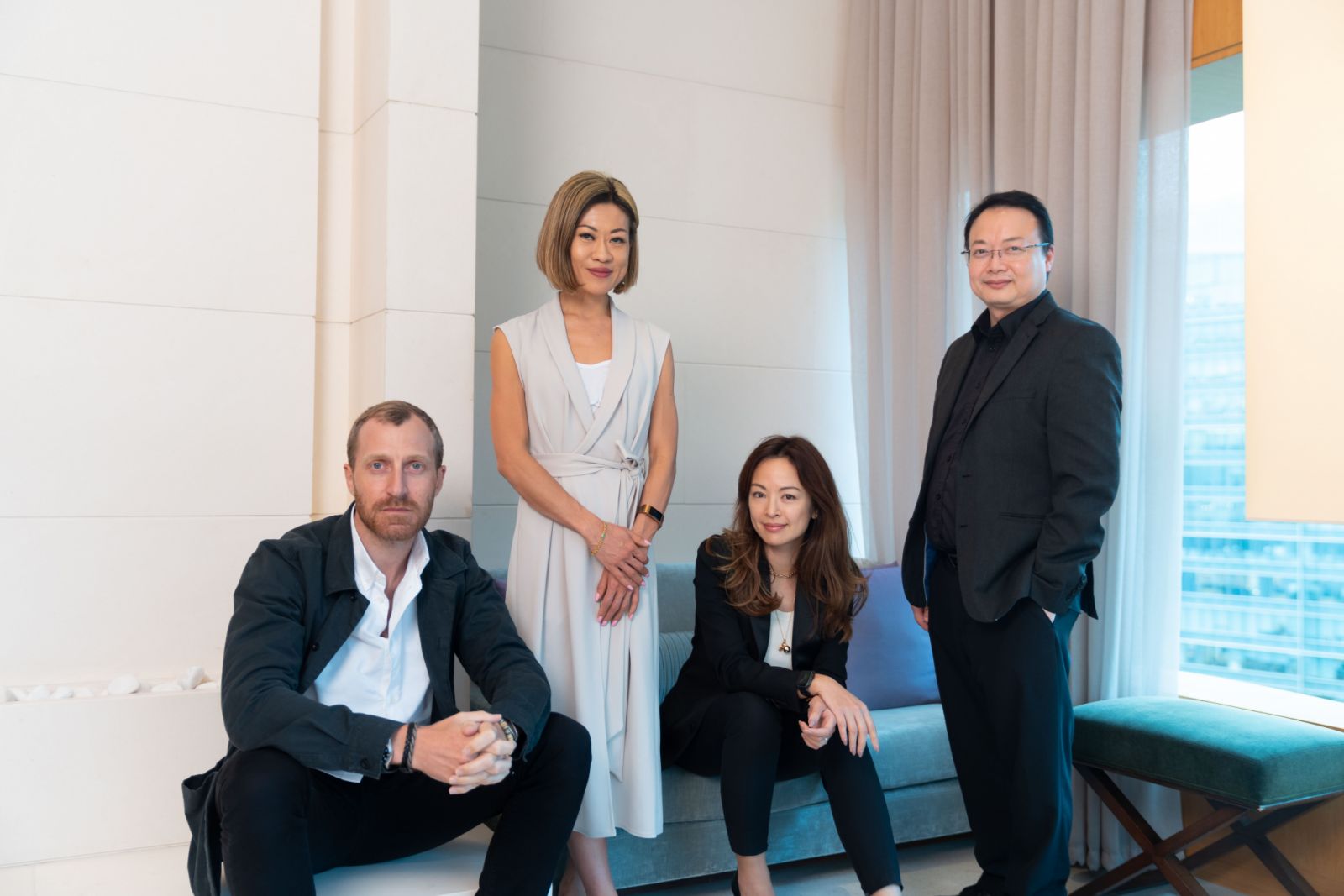On April 19, Tatler and the Upper House hosted the latest edition of House Stories, a monthly panel series at the hotel’s Sky Lounge
When? April 19, 2023
Where? The Sky Lounge at The Upper House
Who? Matt Reid, Regine Ngan and Benny Chow
Here's what you missed: To celebrate Tatler Hong Kong’s sustainability issue and Earth Day on April 22, the April edition of Tatler’s House Stories put a spotlight on how three industry leaders in Hong Kong are working towards a more sustainable future.
The event, which took place at The Upper House’s Sky Lounge on April 19, featured Matt Reid, co-founder of Steelhead Group and CEO of Kin, which plans to open kitchens across Asia to make sustainable food available to everyone; Regine Ngan, director and head of department for jewellery at Sotheby’s Hong Kong, which is committed to reducing its carbon footprint by 50 percent by 2030; and Benny Chow, director of sustainability at architectural firm Aedas, who specialises in green.
Moderated by Tatler Hong Kong deputy editor and Tatler Homes Hong Kong editor Andrea Lo, the conversation covered ethical consumption, the importance of transparency in the food supply chain, and the benefits of sustainable design.
Sustainability is at the core of the auction house business, said Ngan, who explained that Sotheby’s is rethinking shipping, packaging and marketing. Meanwhile, the resale of collectables and property are conducted “with transparency and at fair market value”. Ngan also stressed the company’s commitment to the community: it is working with the WWF to rebuild forests and protect animals, and last year, it worked with the Needle and Thread Charitable Foundation to promote unique handicrafts of women in China’s remote areas in an effort to preserve traditional Chinese culture.
Chow, who lives and breathes sustainability, explained that Aedas considers the environment, people and their health, along with the financial viability of each design, in the firm’s projects. “When we can optimise all three aspects, we can [confidently] say that we are sustainable,” he said. Ninety per cent electricity in Hong Kong is used by buildings, equating to 66 per cent of Hong Kong’s carbon footprint: “This is why producing better buildings is of utmost importance [to us],” he said.
Reid, whose work is focused on how to make people eat better, said while Hong Kong is making strides in sustainability, it still has much further to go. “Our food systems have been failing us—we live in an incredibly linear society and we have normalised only using things once,” he said. Cost is a factor, especially when it comes to the younger demographic: “It’s unfair to say they don’t care [about sustainability] when the overwhelming reality is that life in Hong Kong is incredibly expensive. If they had a choice between a HK$40 dollar lunch or a HK$60 lunch, but the HK$60 lunch had more elements of sustainability in it, the reality is that they will likely choose the [cheaper option].” He shared his vision to launch Kin in supermarkets, schools and offices to provide nutritious food for the average price of HK$80, ensuring everyone has access to sustainable meals at an affordable price point.
Other topics discussed included how society can benefit from sustainable architecture; changes in consumer habits after the pandemic, food security and each speaker’s predictions for the future of sustainability. Ngan said mindsets will continue to evolve, while Chow explained that the pandemic was a wake-up call for society to start living healthier lifestyles, with many of his clients requesting “urban farms” to be built at home in an effort to be closer to nature. Reid ended the panel on a thoughtful note: “Transparency will be standardised by technology—we won’t have the choice not to be sustainable.” In a world where sustainability is often an afterthought, the speakers gave the audience a glimmer of hope for the future and left them optimistic for what’s to come.




